December 31, 2025 | 10:46 GMT +7
December 31, 2025 | 10:46 GMT +7
Hotline: 0913.378.918
December 31, 2025 | 10:46 GMT +7
Hotline: 0913.378.918
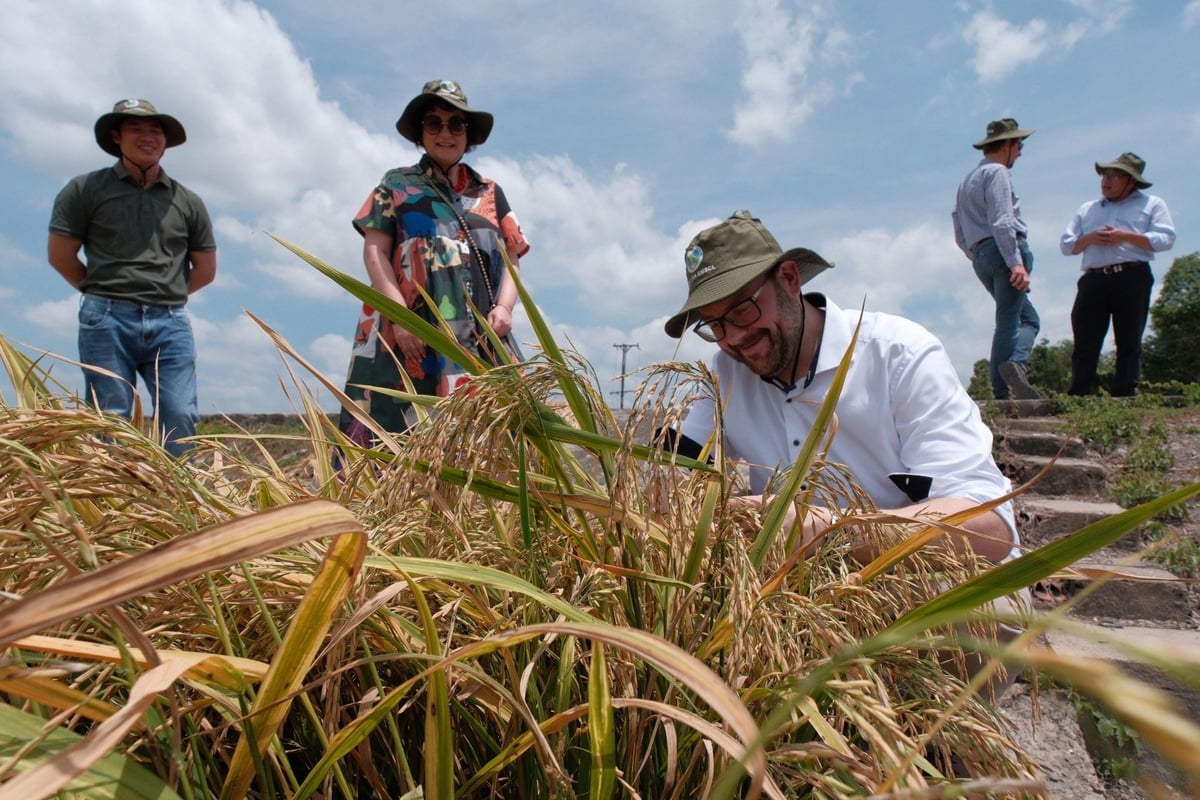
On March 14, a high-ranking delegation from the German Agricultural Society (DLG) visited Can Tho City. The delegation included key DLG leaders: Professor Katharina Reihn, Vice President of DLG; Dr. Lars Huf, Deputy Managing Director of DLG Markets; and Mr. Erik Guttulsröd, Deputy Managing Director of DLG Competence Center and Head of Farm Management and Sustainability. This field trip took place on the occasion of AGRITECHNICA ASIA Vietnam 2025.
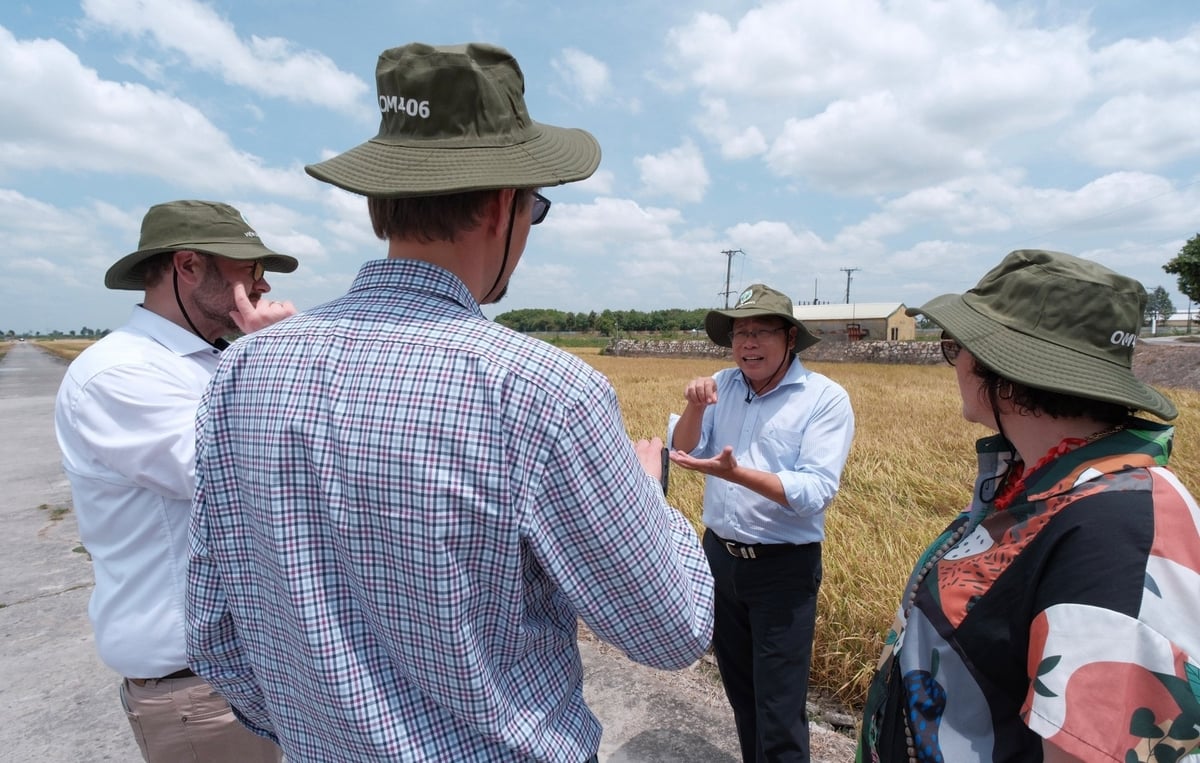
One of their key stops was the Cuu Long Delta Rice Research Institute, where Dr. Tran Ngoc Thach, the institute’s General Director, introduced the latest scientific and technical advancements, along with ongoing pilot models.
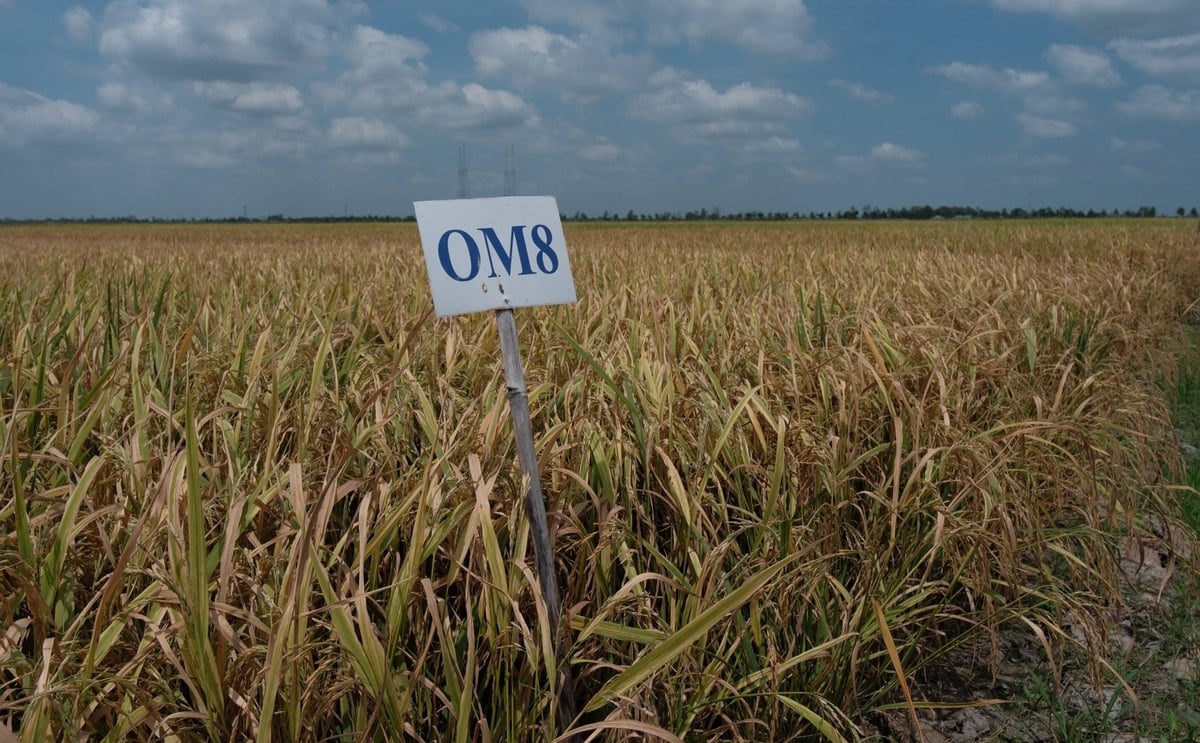
In 2022, the institute served as the venue for the AGRITECHNICA ASIA Live event, a significant milestone in promoting sustainable agriculture through the adoption of advanced and modern technological solutions.
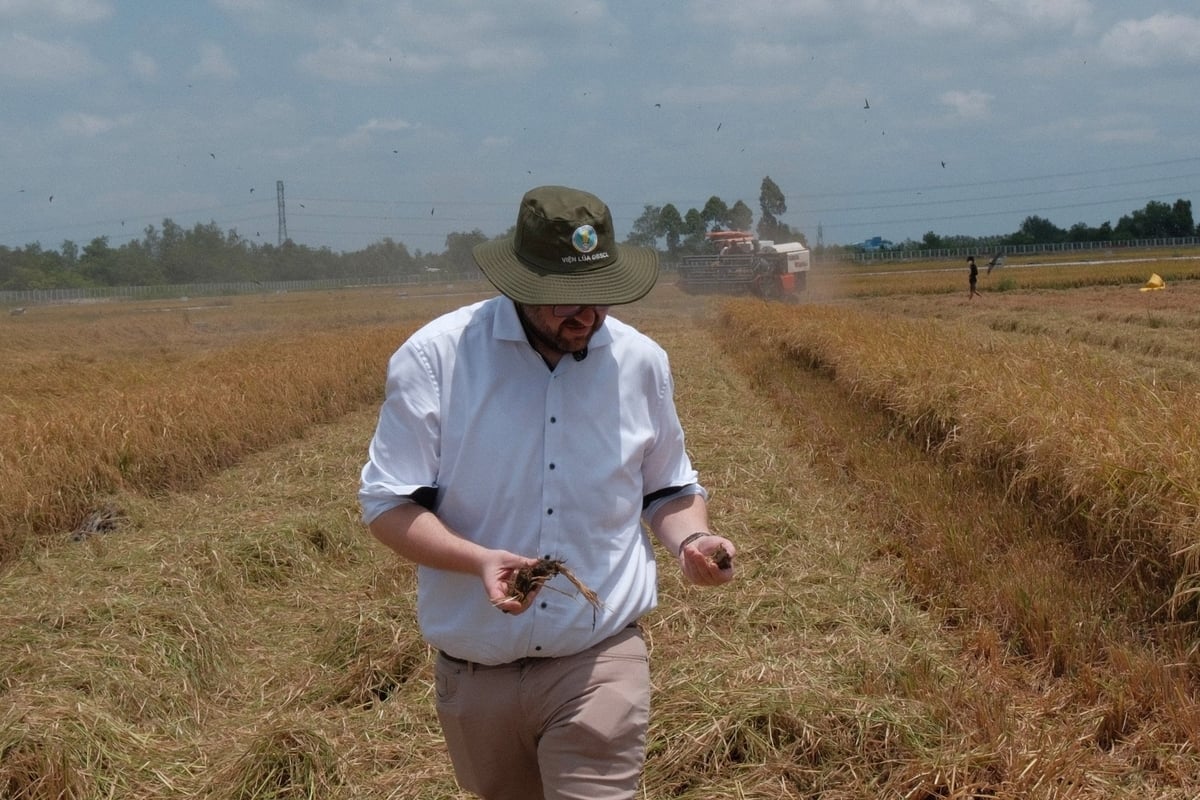
One aspect that particularly interested the German experts was the region’s soil and land characteristics.
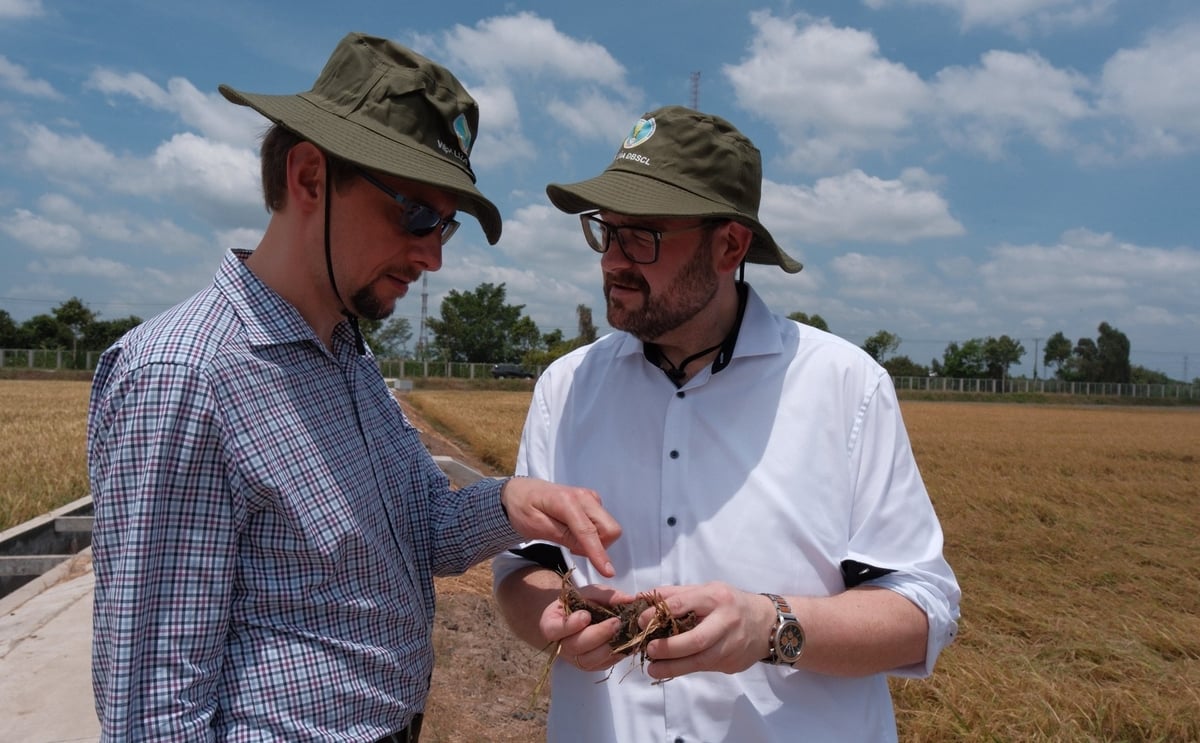
They observed and analyzed soil samples, noting the swampy, soft, and easily sinking terrain. This raised concerns that large, high-capacity agricultural machinery from other countries may not be suitable for Vietnam’s conditions. As a result, further research and adaptations will be necessary to integrate European technologies effectively for local farmers.
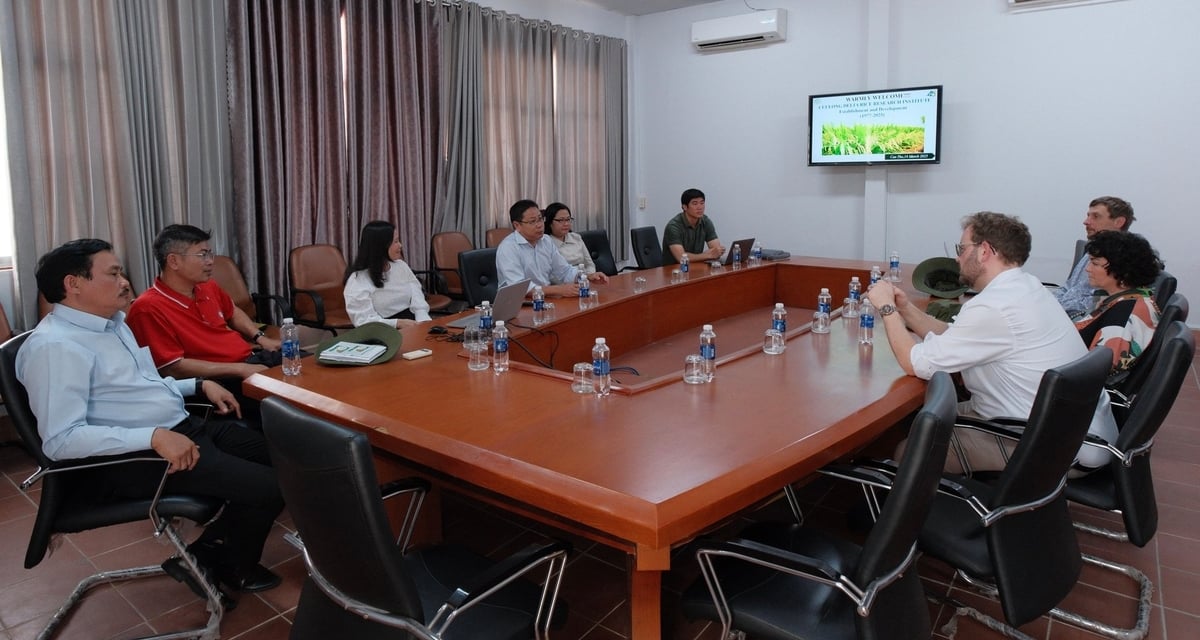
Following the visit, the DLG delegation gained deeper insights into the research and development direction of the Cuu Long Delta Rice Research Institute. Also present were Dr. Tran Van Tam, Principal of the Southern College of Engineering and Agriculture (leftmost in the photo); Ms. Huynh Kim Dinh, Deputy Director of the Department of Cooperatives and Rural Development (top row, second from right); along with key officials from the institute.
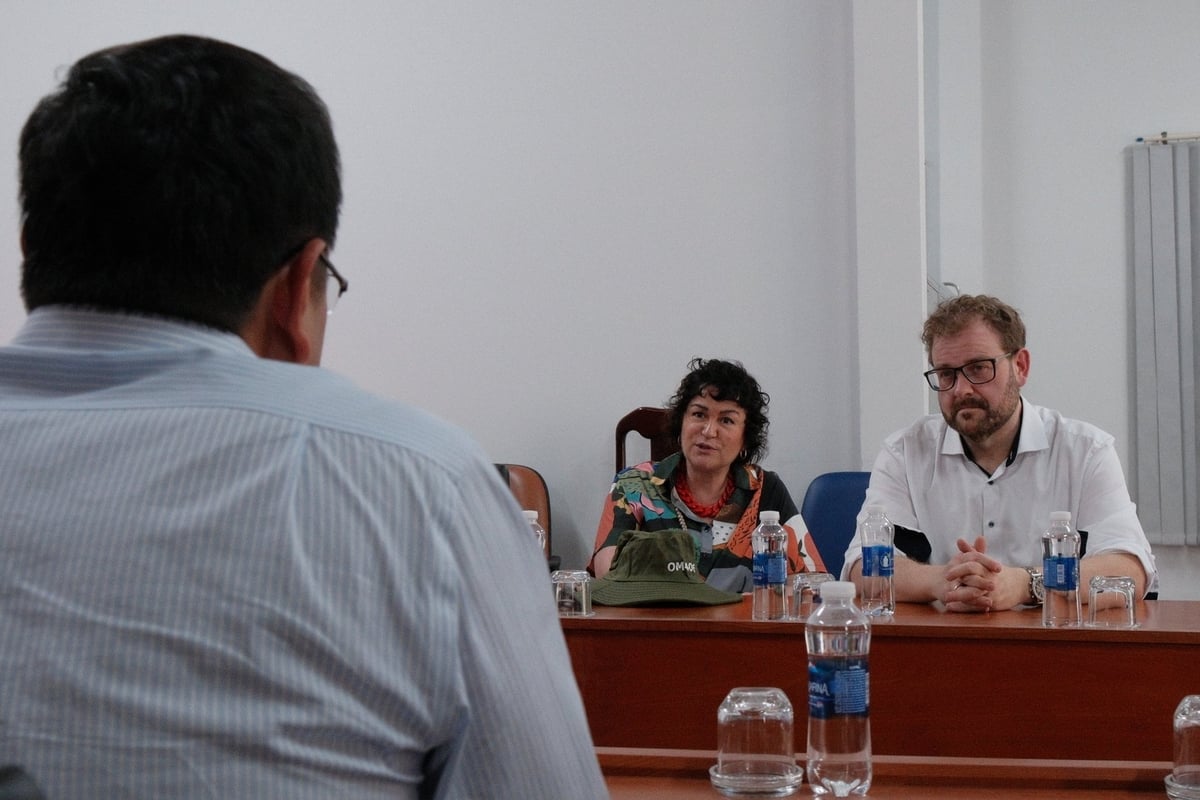
DLG Vice President, Prof. Katharina Reihn, expressed her hope for future collaboration with the Ministry of Agriculture and Environment, particularly in developing demonstration farm models and agricultural training centers.
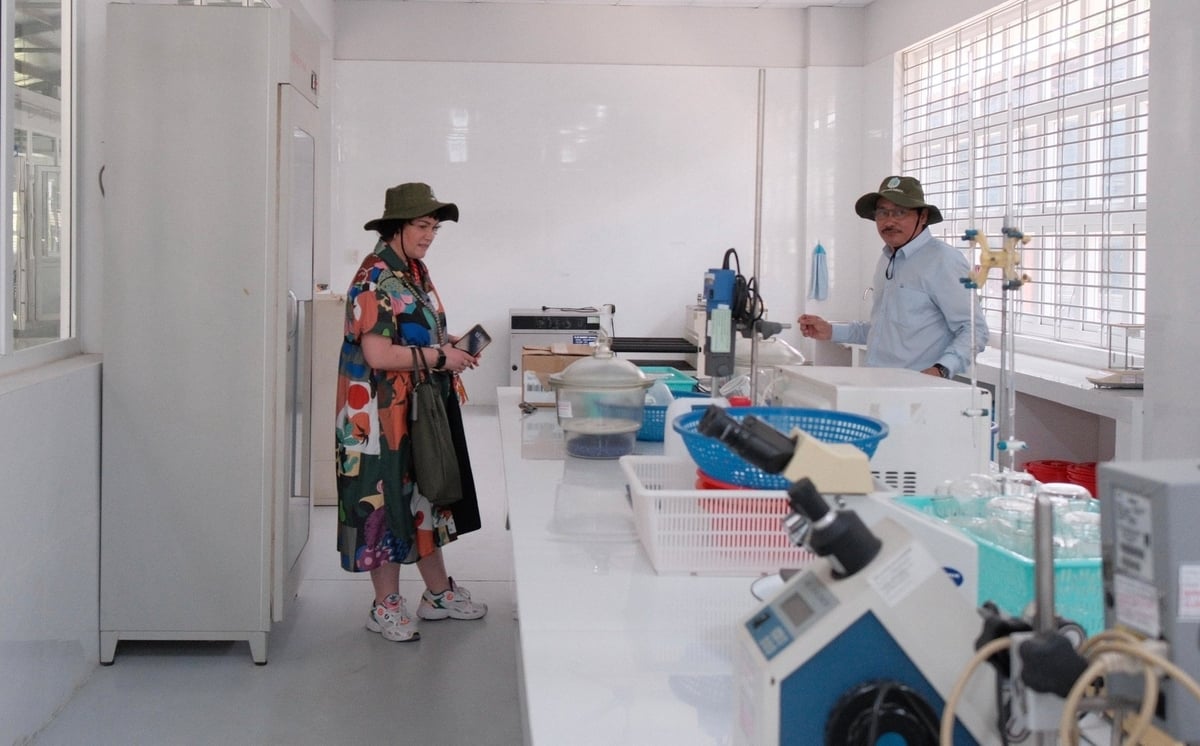
Next, the DLG delegation visited the training and research facilities of the Southern College of Engineering and Agriculture.
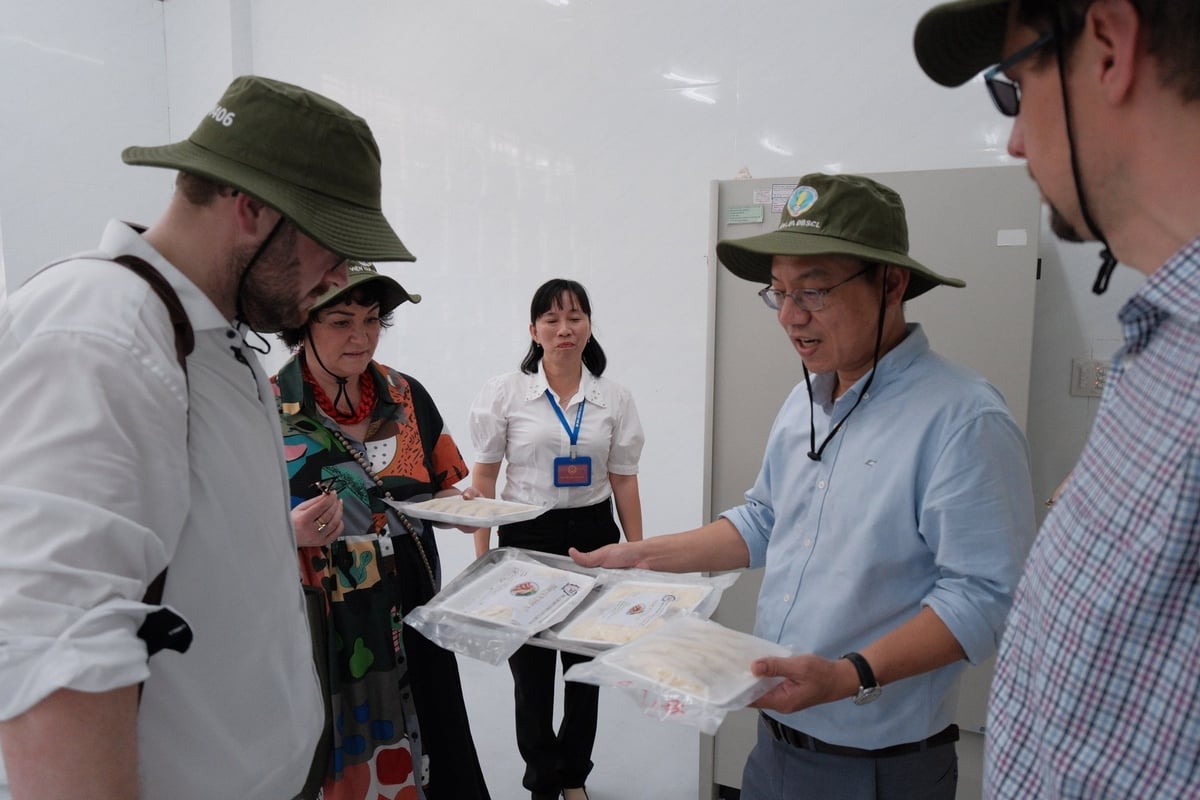
At the college, faculty members shared their hands-on teaching methods, which closely integrate theory with practical applications. For instance, in the agricultural and aquatic product processing class, teachers and students collaborated to perfect a frozen shrimp tempura product while ensuring food hygiene and safety standards.
Beyond education, the Southern College of Engineering and Agriculture is a trusted partner for cooperatives across the Mekong Delta. With years of industry experience, the college provides regular support to cooperatives in building OCOP (One Commune, One Product) brands, covering everything from raw material processing to packaging, brand design, and trademark registration.
DLG’s visit to Can Tho has opened new opportunities for collaboration in research, technology transfer, and farmer training, aiming to enhance agricultural sustainability and efficiency in the Mekong Delta.
Founded in 1885 by engineer Max Eyth, DLG was originally established to test agricultural machinery and products for the benefit of farmers. Over time, it has grown into a vast network of experts specializing in agriculture, food science, and food technology.
Committed to supporting farmers and food producers, DLG facilitates access to the latest technologies and equipment. With an ever-expanding global network, the association also organizes trade fairs and networking events, helping businesses, professionals, and policymakers stay up to date with the latest advancements in the field.
Translated by Quynh Chi

(VAN) From extensive shrimp ponds, baskets of don gathered on the mudflats, to boats carrying visitors to watch birds, all livelihoods here depend on clean water, green forests, and the calls of migratory birds.
/2025/12/26/0703-3-204813_117.jpg)
(VAN) Transparency in information and listening to local people have helped address ground clearance bottlenecks and build social consensus, thereby accelerating the progress of the JICA3 irrigation project.
/2025/12/27/0609-3-233846_327.jpg)
(VAN) The JICA3 project is expected to become a 'water shield,' helping control saltwater intrusion, proactively secure water resources, protect livelihoods, and promote sustainable development in coastal areas.
/2025/12/26/5654-3-164509_655.jpg)
(VAN) As Viet Nam makes strong commitments toward achieving net-zero emissions, controlling and reducing methane emissions in livestock production is increasingly becoming a mandatory requirement.

(VAN) 'People, Primates, Plants: Co-managing Biodiversity and Improving Livelihoods in Vietnam' (the PPP Project) is an international initiative implemented in Vietnam by BGCI, CEGORN, and ICRAF/World Agroforestry.

(VAN) Dak Nong established a risk-level zoning map for coffee, built a digital data platform for the sector, and promoted certified production in line with EUDR.
/2025/12/25/2709-1-211551_295.jpg)
(VAN) In response to the U.S. Marine Mammal Protection Act (MMPA), Gia Lai province is implementing many solutions to protect marine mammals and develop sustainable, responsible fisheries.